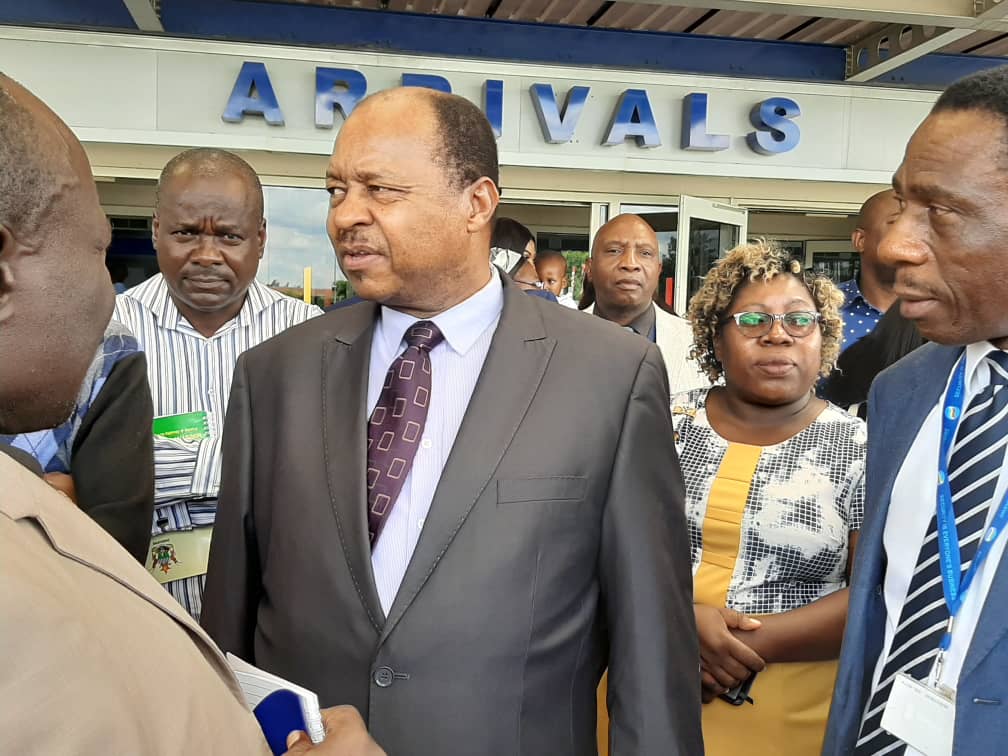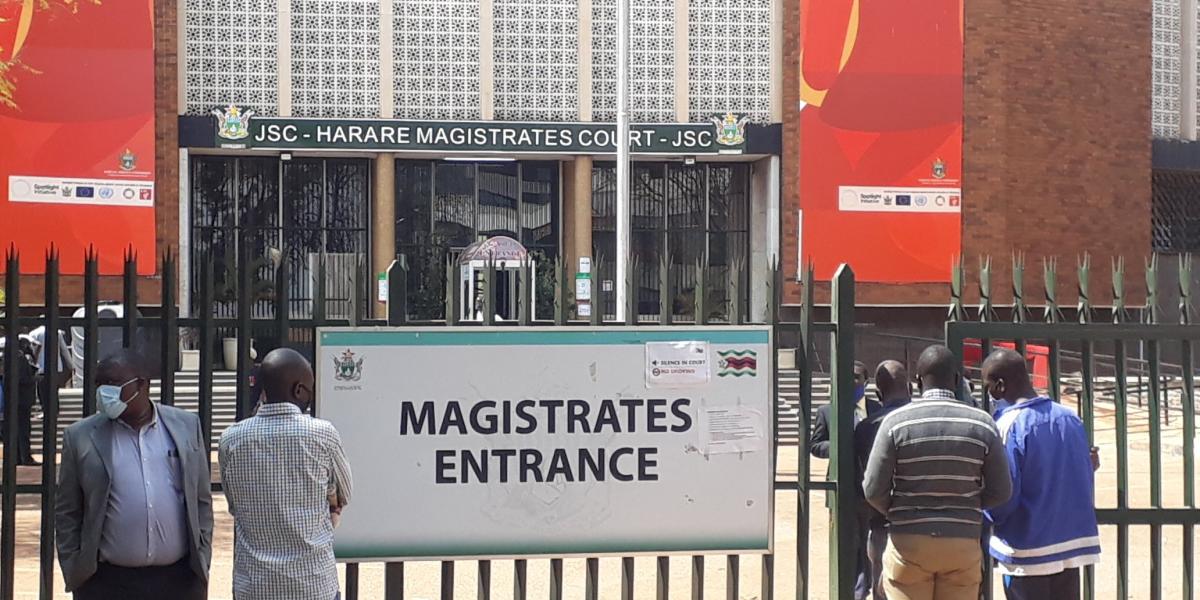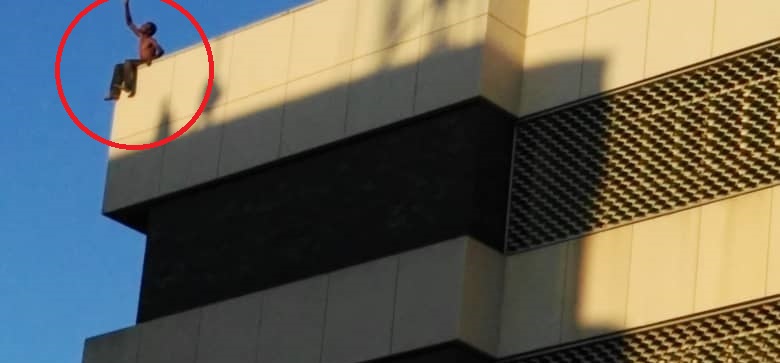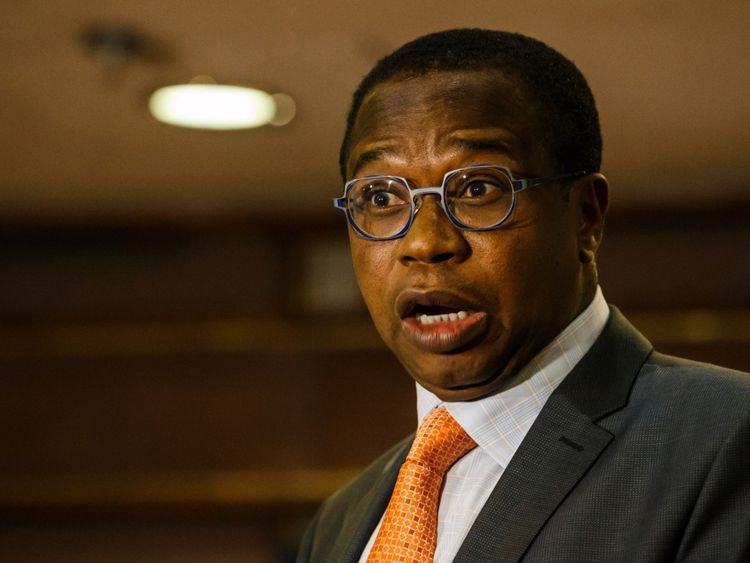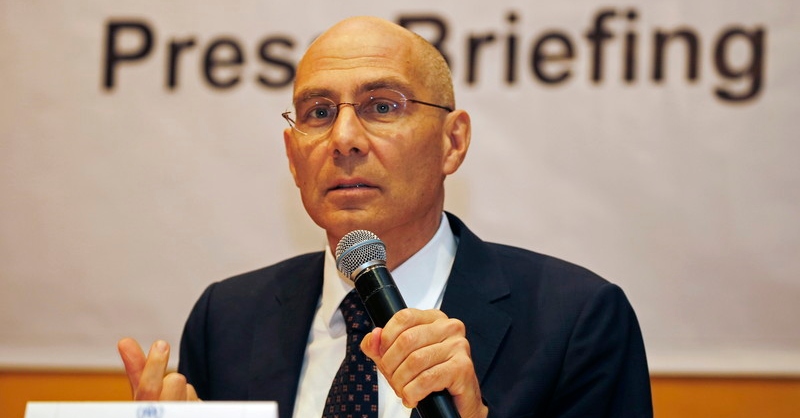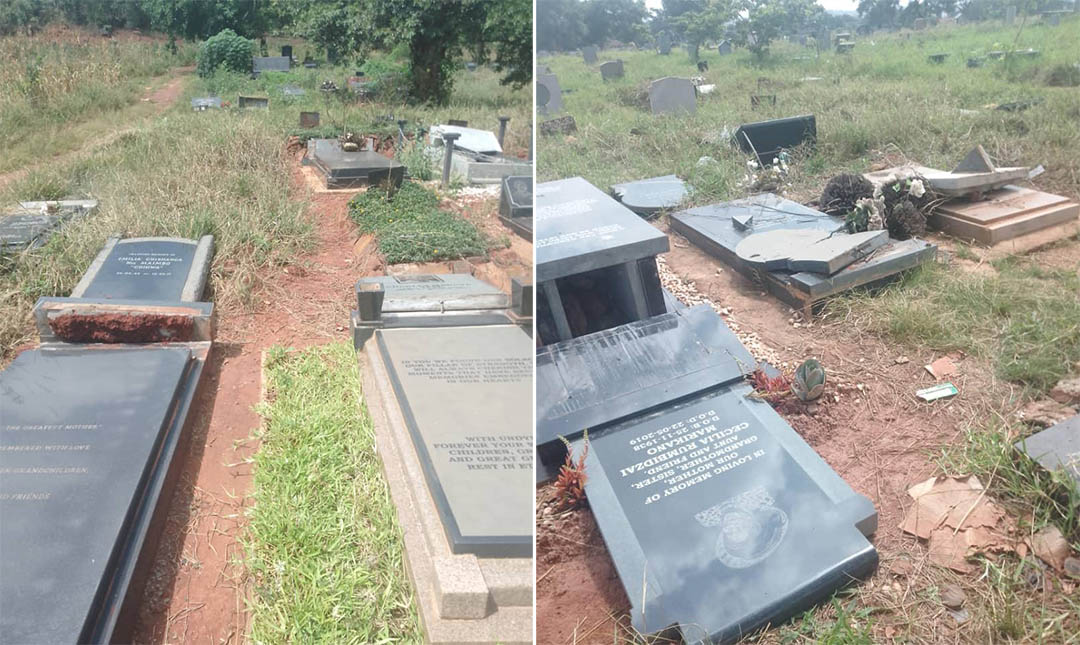HARARE – Zimbabwe on Friday night confirmed its first coronavirus case – a 38-year-old man who resides in the resort town of Victoria Falls but recently travelled to the United Kingdom.
Health minister Obadiah Moyo, in a statement, said: “This evening, Friday, March 20, the National Microbiology Reference Laboratory at the Sally Mugabe Central Hospital (previously Harare Hospital) confirmed that a suspected case of Covid-19 has tested positive.
“This is the first case of Covid-19 in Zimbabwe.”
Moyo said the patient, described as a “38-year-old Caucasian male resident of Victoria Falls”, travelled to Manchester in England on March 7, returning to Zimbabwe on March 14 after transiting through South Africa.
The Victoria Falls is one of Africa’s most visited tourist spots.
“After arrival he put himself on self-quarantine at home as per our advice to all travellers coming from Covid-19 affected countries. On realising that he was not feeling too well, he contacted his doctor by telephone advising him that he had a persistent cough and sneezing,” Moyo said.
The minister said the doctor contacted “the local Covid-19 Rapid Response Team” who visited the patient and collected specimens which were sent to the lab for testing.
“As a result of our preparedness,” Moyo said, “we managed to identify this first case in a timely fashion and ensure that he was appropriately managed.”
Moyo said the patient was “showing signs of recovery after supportive management at home.”
While Zimbabwe was maintaining that it was coronavirus-free, two recent events spotlighted the country’s weak systems – particularly in testing.
On Thursday, a 61-year-old German national who was in Victoria Falls between March 4 and 13 tested positive to coronavirus after arriving in Namibia.
Zimbabwe health ministry, which said earlier this week that only 14 people have been tested for coronavirus, said in a statement on Friday that it was following up on people who had contact with the German.
On Monday, it was revealed that a British woman who was in Victoria Falls from March 7 to 10 had tested positive for coronavirus after landing back in England.
The pandemic now threatens a national health system that has nearly collapsed amid an economic crisis.
President Emmerson Mnangagwa days ago declared a national disaster, and some citizens have openly dreaded the pandemic’s arrival. Already, public hospitals lack basic items such as gloves. Relatives of patients are expected in some cases to even provide buckets of water.
The government said it was “well prepared” to deal with Covid-19 cases.
Anxiety rose in Africa as two major airlines announced sweeping cancellations of international flights on Friday over the coronavirus, the continent’s busiest airport blocked foreigners from disembarking.
South African Airways suspended all international flights until June. Ethiopian Airlines, Africa’s largest carrier, cancelled flights to 30 countries. That airline, which operates a key continental hub, was under pressure from some in Africa’s second most populous country to halt flights to high-risk countries.
South Africa said coronavirus cases jumped to 202, the most in the sub-Saharan region. Five of the new cases had attended a church gathering of more than 200 people in central Free State province. All had arrived from abroad. Authorities were rushing to find other attendees.
Johannesburg’s O.R. Tambo International Airport said aircraft with foreigners “will be contained at an isolated bay with all officials ensuring the utmost care is taken,” following up on travel restrictions announced days ago when South Africa declared a national disaster. It was working with airlines to ensure foreigners’ “return to the country of origin.”
Foreigners across the continent of more than 1.3 billion people face the growing risk of being stranded as countries close borders.
The financially troubled South African Airways announced its immediate suspension of all international flights through May 31 as CEO Zuks Ramasia cited travel bans and plummeting demand.
“The increasing risks to our crew of contracting the virus, including the possibility of being trapped in foreign destinations as a consequence of increasing travel bans, cannot be ignored,” she added.
SAA flies to New York, London, Frankfurt, Munich and Washington — all in what South Africa now considers high-risk countries.
Also Friday, two other African nations announced its first cases, Madagascar and Cape Verde. Thirty-nine countries on the continent now have cases, with a total now well above 900.
So far most of the cases in Africa have been linked to overseas travel. But overnight Niger in announcing its first case highlighted possible regional spread inside the continent. Its citizen had travelled via the West African capitals of Togo, Ghana, Ivory Coast and Burkina Faso.
Tunisia declared a lockdown. Malawi, without a virus case, declared a state of disaster. Nigeria closed three international airports but those in Lagos and the capital, Abuja, remained open. South Sudan closed its schools.
Sierra Leone President Julius Maada Bio directed the military to the international airport and land borders to increase security “and support compliance with all public health directives” while calling on people not to panic.
“If you cannot do so voluntarily then we will keep you in isolation by force,” Kenya’s health chief, Mutahi Kagwe, has warned. The country ordered bars and nightclubs to close by 7:30PM effective Monday.
Deaths across Africa from the virus reached 22 as Gabon reported its first. No-one has died in South Africa, where the health minister said no patient was in intensive care.
All but 23 of South Africa’s cases are in people under age 60. In Cape Town, a major tourist destination, the popular waterfront nearly emptied.
“The virus is going to be with us for quite a while,” the minister, Zweli Mkhize, told reporters. “In fact, it’s going to be one of those viruses that our bodies have to build new immunity to be able to deal with and defeat.”
This is a reality people must face, he said, “but it’s not a reality that says we are facing an apocalypse.”
In Johannesburg one bar patron, Katlego Ramahanetsa, began to worry about the future.
“My business been bad, I’ve been at home because I’m a DJ, so I’ve been just chilling, not doing anything, and now get to start using the savings that you didn’t plan to use,” he said. “And there’s nothing I can do.”
